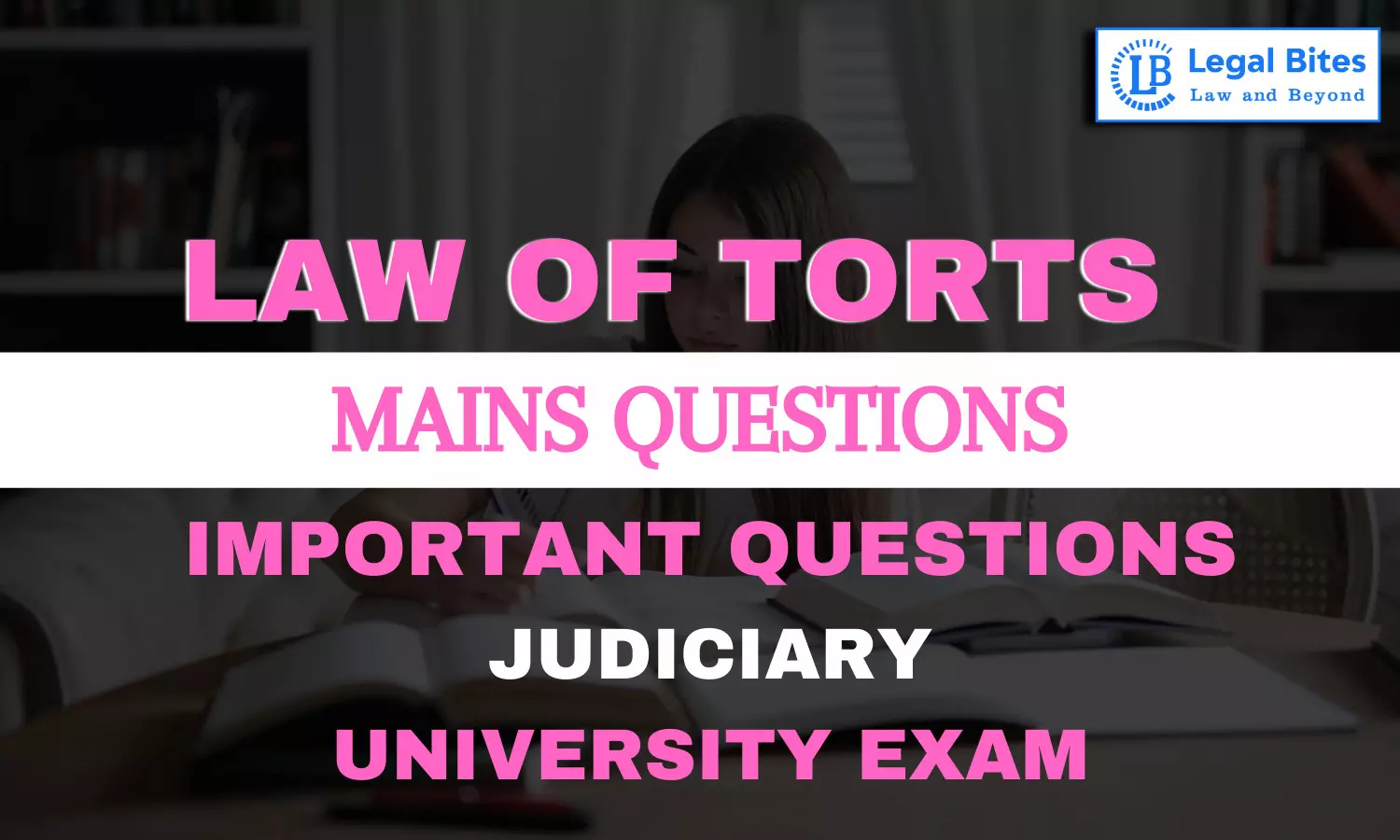"Intention to defame is an essential ingredient of tort of defamation." Discuss.
Find the question and answer of Law of Torts only on Legal Bites.

Question: "Intention to defame is an essential ingredient of tort of defamation." Discuss. [UPJS 1999]Find the question and answer of Law of Torts only on Legal Bites. ["Intention to defame is an essential ingredient of tort of defamation." Discuss.]AnswerDefamation is a tort that arises when a person's reputation is harmed by a false statement made by another person. It is an action that can be brought in civil court, and the plaintiff must prove that the defendant made the false statement...
Question: "Intention to defame is an essential ingredient of tort of defamation." Discuss. [UPJS 1999]
Find the question and answer of Law of Torts only on Legal Bites. ["Intention to defame is an essential ingredient of tort of defamation." Discuss.]
Answer
Defamation is a tort that arises when a person's reputation is harmed by a false statement made by another person. It is an action that can be brought in civil court, and the plaintiff must prove that the defendant made the false statement to harm the plaintiff's reputation. Thus, the intention to defame is an essential ingredient of the tort of defamation.
To prove the intention to defame, the plaintiff must show that the defendant made the false statement with the knowledge that it was false or with reckless disregard for whether it was true or false. This is known as the "malice" requirement in defamation cases.
The requirement of intention to defame is important because it helps to balance the rights of free speech and reputation. The law recognizes the importance of free speech, but it also recognizes that false statements can harm a person's reputation and cause damage to their personal and professional life. Therefore, for a statement to be considered defamatory, it must be made to harm the plaintiff's reputation.
Many cases illustrate the importance of intention to defame in the tort of defamation. For example, in the case of New York Times Co. v. Sullivan, 376 U.S. 254 (1964), the United States Supreme Court held that public figures must prove actual malice to succeed in a defamation action. In this case, the plaintiff was a public official who had been criticized in a newspaper article. The court held that the plaintiff must prove that the defendant made the false statement with knowledge that it was false or with reckless disregard for whether it was true or false, to succeed in the defamation action.
Similarly, in the case of Milkovich v. Lorain Journal Co., 497 U.S. 1 (1990), the United States Supreme Court held that a statement must be provably false and made with actual malice to be considered defamatory. In this case, the plaintiff was a wrestling coach who had been accused of lying under oath by a newspaper article. The court held that the plaintiff must prove that the statement was false and made with actual malice to succeed in the defamation action.
In another case, Gertz v. Robert Welch, Inc., 418 U.S. 323 (1974), the United States Supreme Court held that private individuals must prove negligence on the part of the defendant to succeed in a defamation action. In this case, the plaintiff was a private individual who had been accused of being a member of a communist conspiracy by a magazine article. The court held that the plaintiff must prove that the defendant was negligent in making the false statement to succeed in the defamation action.
Intention to defame is an essential ingredient of the tort of defamation. The plaintiff must prove that the defendant made the false statement to harm the plaintiff's reputation to succeed in a defamation action. This requirement helps to balance the rights of free speech and reputation and ensures that only false statements made to harm a person's reputation are considered defamatory. Many cases illustrate the importance of intention to defame in the tort of defamation, and it is an important principle that must be understood by anyone who is considering bringing a defamation action.

Mayank Shekhar
Mayank is an alumnus of the prestigious Faculty of Law, Delhi University. Under his leadership, Legal Bites has been researching and developing resources through blogging, educational resources, competitions, and seminars.
